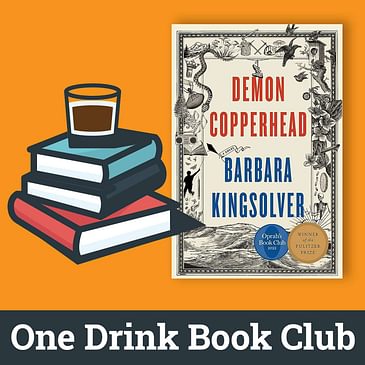Jamey talks with friend David Lyles about Barbara Kingsolver's gripping book Demon Copperhead. Demon Copperhead is the story of a resilient and charismatic boy growing up in southern Appalachia who is constantly dealing with poverty, drug addiction, abandonment, foster homes, and death. This modern-day David Copperfield is engaging, depressing, and hopeful. Find drink recipes and more information on the book at http://OneDrinkBookClub.com.




